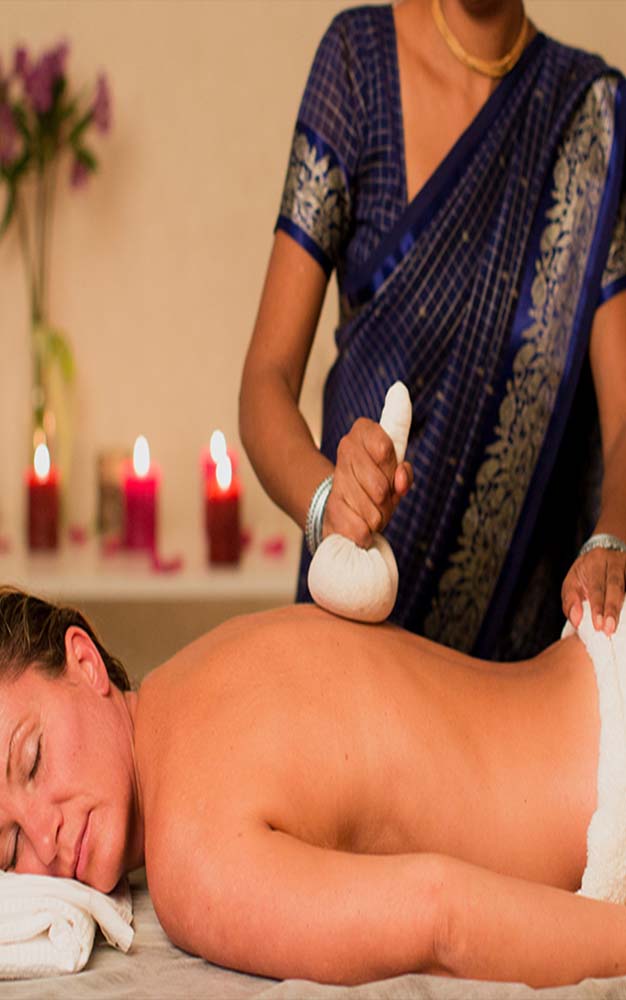Get Support
123-456-789-10


How Does it Work?
Kapha, energy that controls growth in the body. It supplies water to all body parts, moisturizes the skin, and maintains the immune system. In balance, Kapha is expressed as love and forgiveness. Out of balance, Kapha leads to insecurity and envy.
Everyone has vata, pitta, and kapha, but usually one or two of them are dominant in each person. The energy balance can be broken by several things, like stress, poor diet, weather, or strained family relationships. These disturbances show up as disease.
There are several treatments prescribed to bring the doshas back into balance. From a Western medical perspective, stress relief seems to be one of the ways Ayurveda works to help fight illness. For example, studies have found that transcendental meditation, a component of Maharishi Ayurveda, lowers anxiety. Studies have also pointed out that Ayurveda lowers blood pressure and cholesterol, slows the aging process, and speeds recovery from illness. Many herbs used in Ayurvedic medicine have antioxidant effects, which means they may help protect against long-term illnesses like heart disease and arthritis. Many Ayurvedic practitioners also recommend a vegetarian diet, which is believed to be better for your heart than diets containing red meat.



What to Expect From an Ayurvedic Treatment?
It’s all about putting the doshas in balance. On your first visit, the practitioner will take a detailed medical history, check your pulse, feel your abdomen, examine your tongue, eyes, nails, and skin, and listen to the tone of your voice. The practitioner will also ask you questions about your general health, paying special attention to your lifestyle, diet, habits, and surroundings. The practitioner will then recommend ways to restore your natural dosha balance, which almost always includes changes in lifestyle, especially diet. Practitioners draw from more than 20 types of treatments, but the most commonly prescribed include:
- Pranayama :Breathing exercises. Practicing pranayama calms your body.
- Abhyanga :Massaging the skin with herbal oils to increase blood circulation and draw toxins out.
- Rasayana :Using mantras (repeated words or phrases) during meditation, combined with certain herbs, to rejuvenate a person.
- Yoga :A combination of pranayama, movement and meditation. Yoga has been shown to improve circulation and digestion, and to reduce blood pressure, cholesterol levels, anxiety and chronic pain.
- Panchakarma :Cleansing the body to purify it and reduce cholesterol. Practitioners use methods that cause the person to sweat, have bowel movements and even vomit, to cleanse the body of toxins.
- Herbal medicines :Prescribing herbs to restore dosha balance.

